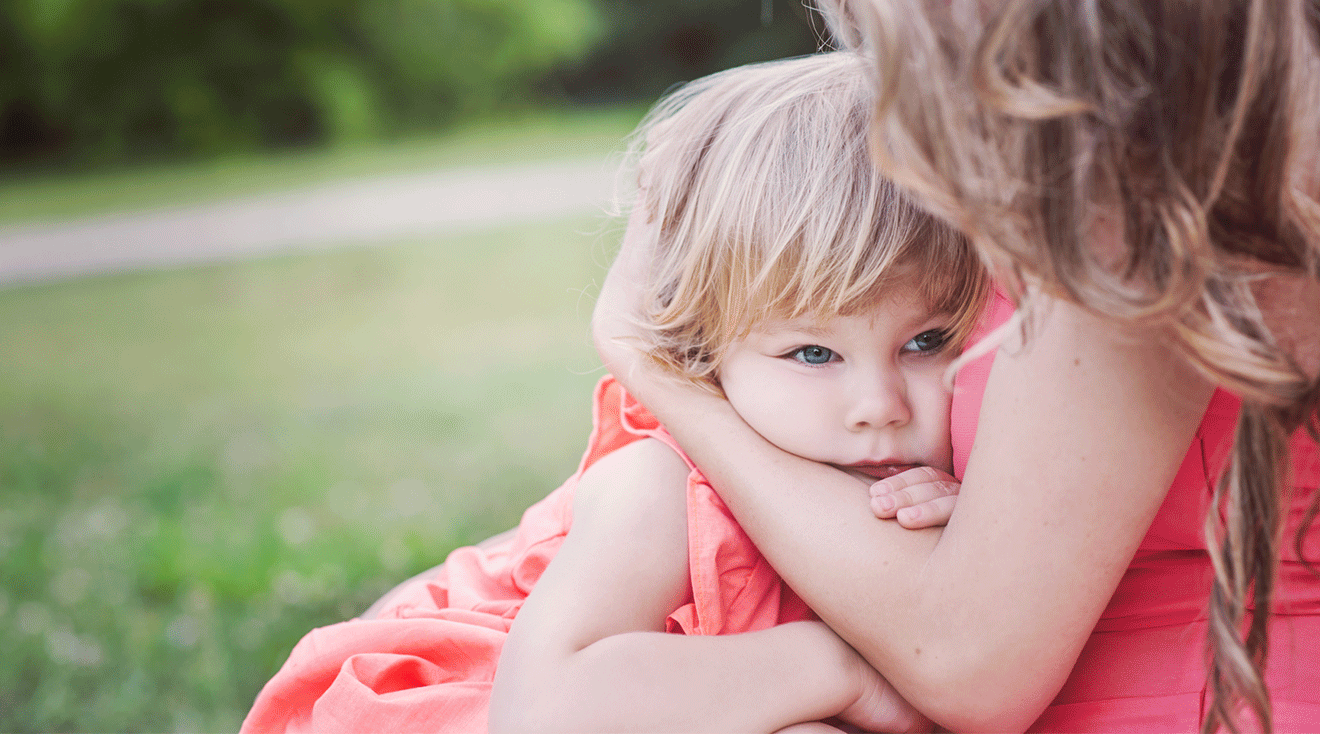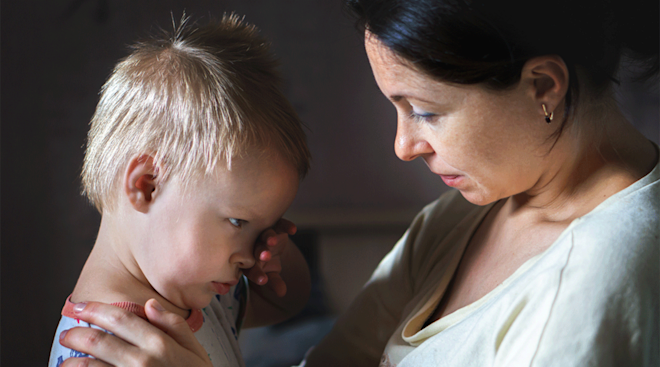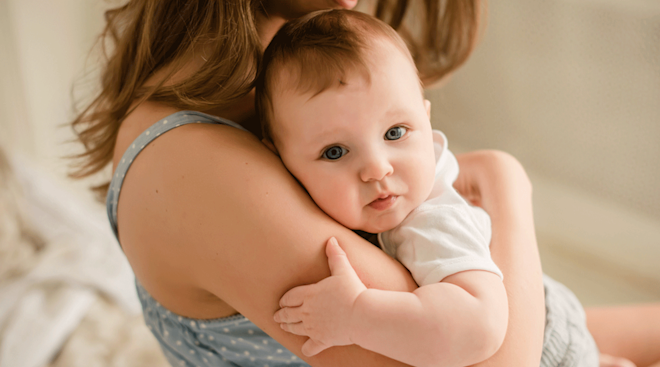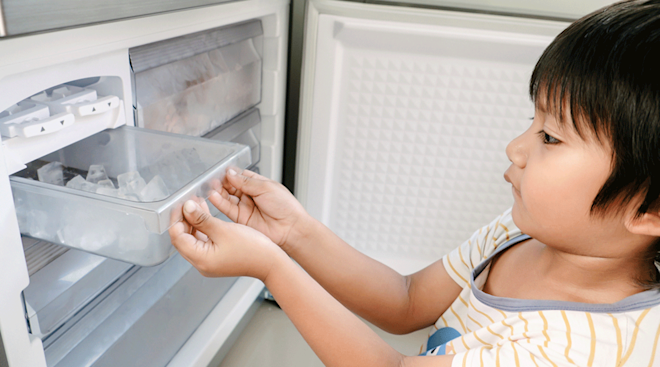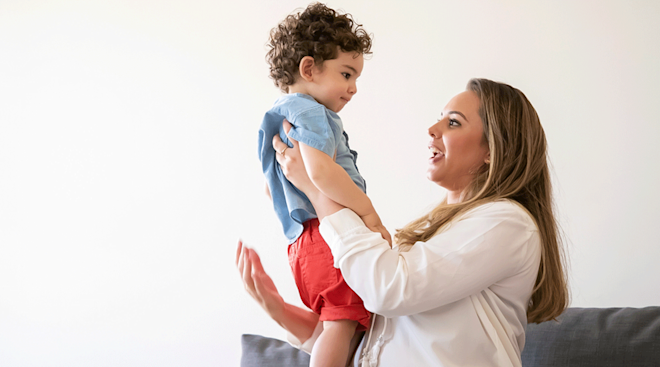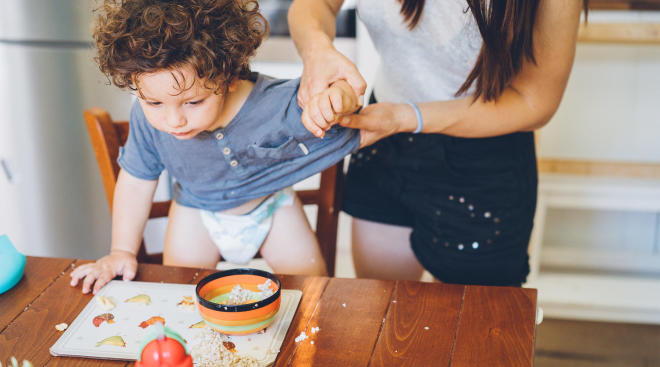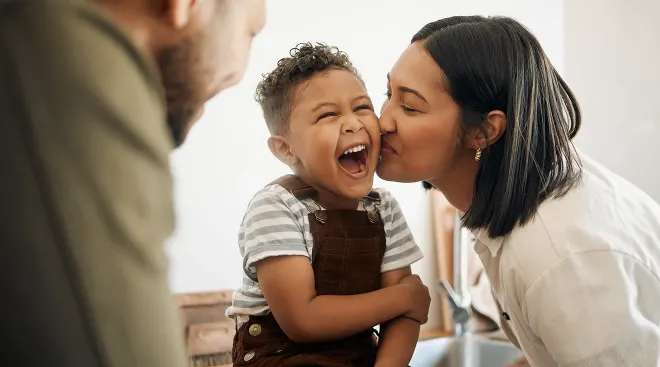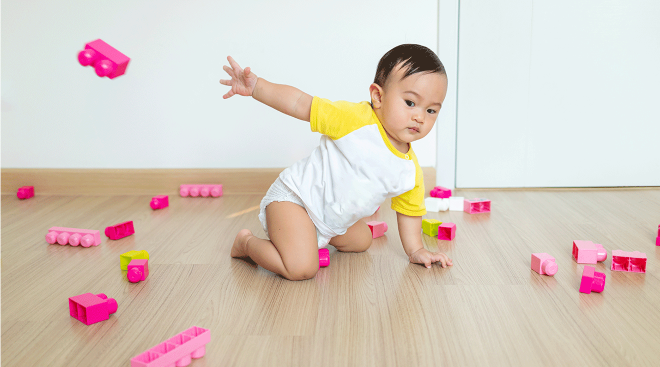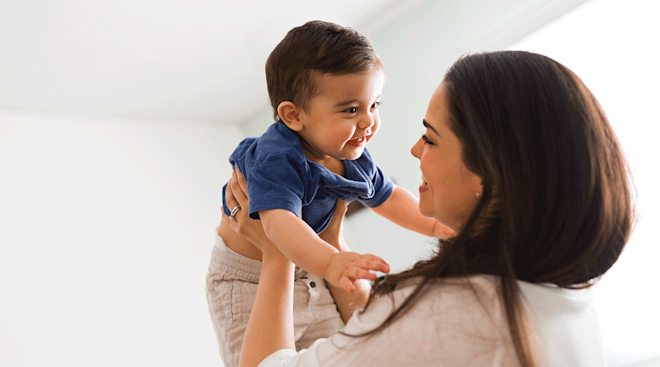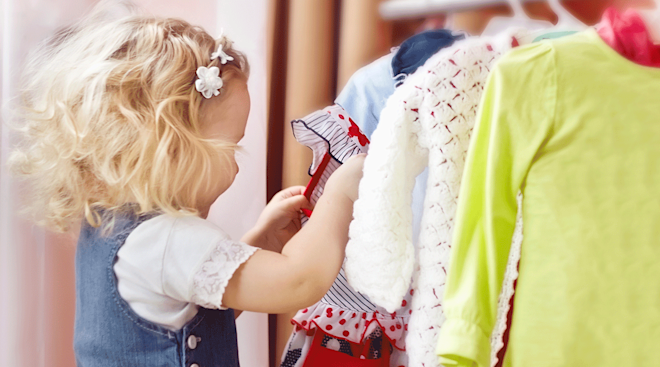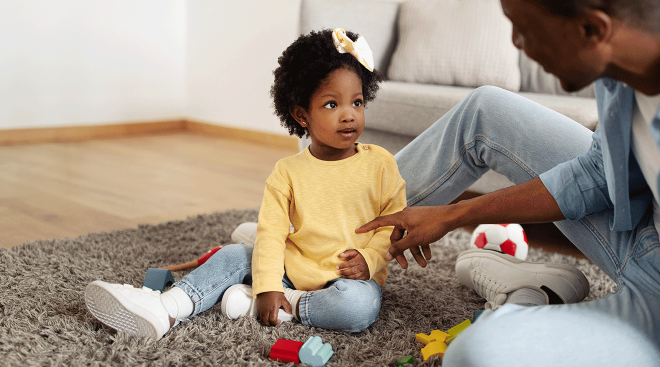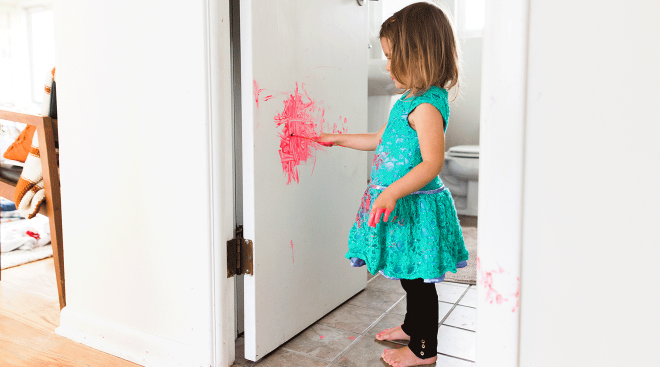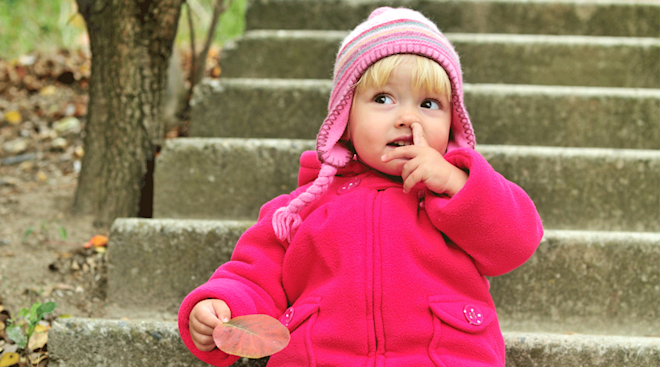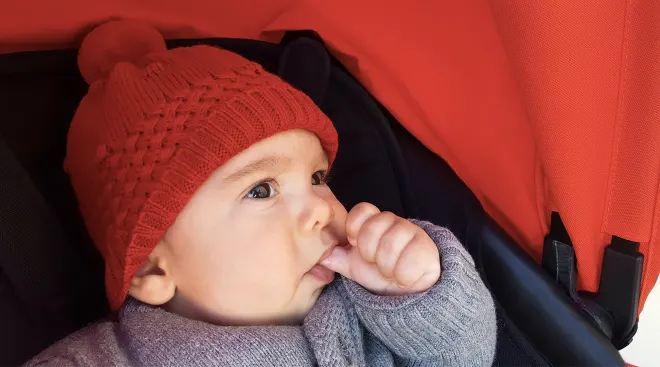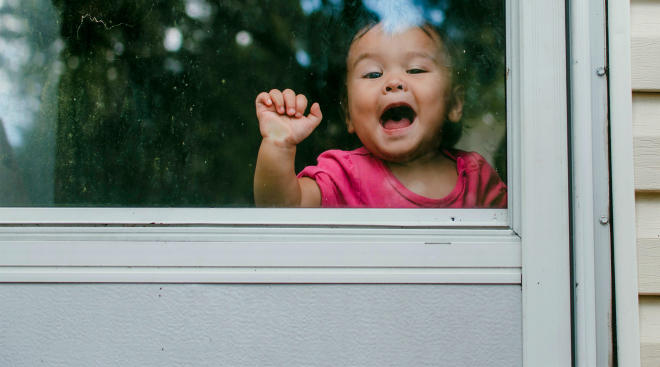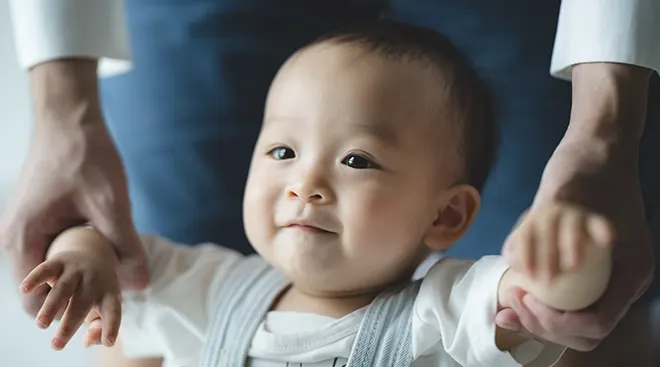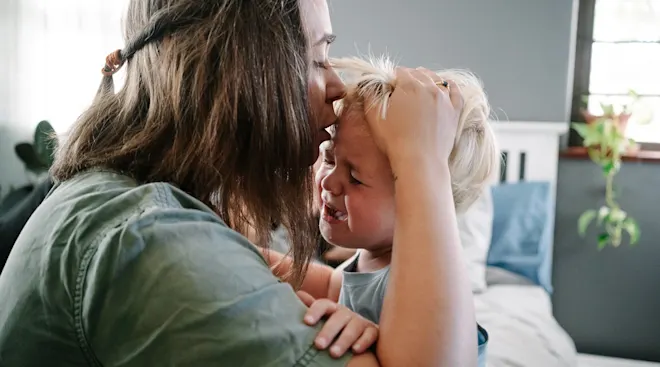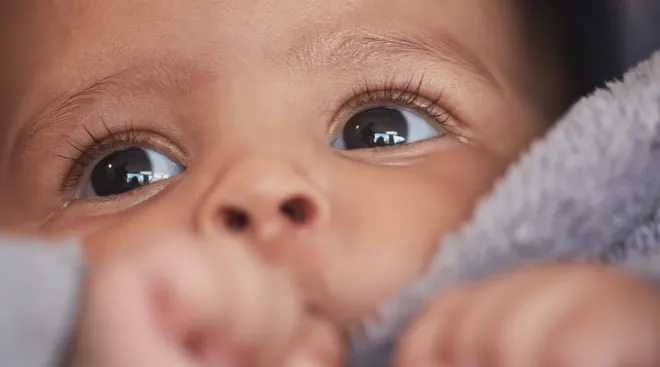Dr. Becky and Other Experts on Parenting Deeply Feeling Kids
Like many millennial moms, I found “Dr. Becky” during the pandemic. I was hiding out in my room one particularly rough morning and decided to check out her Instagram on the recommendation of one of my most aligned mom friends. I was instantly hooked. It was her handheld videos and brilliant scripts—she was giving me down-to-earth meets about-to-fix-your-life. Her strategies seemed like they would actually work with my then-3-year-old daughter, who was giving me a run for our money. And work they have. For our family, the deeply feeling kid framework has been life-changing.
Below, advice from experts (including the one and only Dr. Becky Kennedy) on parenting kids who just feel things a little bit bigger, stronger and deeper.
“Deeply feeling kid” isn’t an official diagnosis. It’s a framework Kennedy developed to describe and support kids who experience the world at a higher volume, and it’s becoming broadly accepted in pediatric psychology. According to Kennedy, “Deeply feeling kids are kids who experience emotions more intensely and more deeply than other kids. That means that they react more strongly to situations. Their feelings last longer.” Deeply feeling kids tend to push their caretakers away when dysregulated, fearing they’ll overwhelm them. However, often their pleas for distance mean just the opposite. “For so many deeply feeling kids, in their most dysregulated moments, their words are their fears, not their wishes,” says Kennedy. She encourages parents to stay close in these charged moments.
A deeply feeling kid’s big reactions (and the responses they sometimes garner from adults) can lead to shame. It’s like these kids are thinking, “If I get this worked up when I obviously shouldn’t—and my grownups don’t even know how to help me—something must be really wrong with me.” Kennedy emphasizes that there’s nothing wrong with these kids—that being a deeply feeling kid isn’t a flaw. In fact, their heightened sensitivity to the world makes DFKs observant, creative, interesting little people. They just need more tools to process and manage their big feelings, and they need caretakers and teachers who understand them.
First, deeply feeling kids tend to escalate quickly. “Everything seems fine, something seemingly small happens, and there’s an explosion. Deeply feeling kids have very big reactions to things that other people might experience as insignificant,” says Kennedy. Since deeply feeling kids take in more sensory information than other kids, they’re likely more overwhelmed at baseline. So what appears to be them going from 0 to 60 is really them going from 50 to 60.
Another sign you have a deeply feeling kid is they reject parenting strategies that work well for other kids. Standard emotional validation techniques are “experienced as too much, too close, too vulnerable for a deeply feeling kid,” says Kennedy. If you try to talk directly to a deeply feeling kid about their feelings or help them process a tricky moment, “they tend to reject that or even put their hand over their ears,” she says. They do better with what she calls “side-door strategies.”
In the words of Kennedy, kids are born with all of the feelings and none of the skills to manage them. Since deeply feeling kids feel their emotions more intensely than other kids, supporting them in ways that are tailored to their brains is paramount.
Understand them
“Number one, and the most important thing, is understanding your deeply feeling kid. There is no strategy that’s ever going to be as powerful as understanding,” says Kennedy. When we see deeply feeling kids as kids who are struggling and in need of compassion and tools, it changes our lens. “We start to see we have a good kid who’s having a hard time. They’re not bad, they’re actually often terrified and overwhelmed, and that’s one of the things that can help us intervene in a way that feels better for everyone, including ourselves as the parents,” she says.
Work on your triggers
Parenting a deeply feeling kid is rewarding, but it can also be overstimulating, exhausting, and triggering. As parents, we feel triggered by behaviors that weren’t tolerated in us as kids, and DFK explosions tend to check that box. It’s key for us to practice emotional regulation techniques and to address aspects of our childhood that cause us to feel triggered. Kennedy suggests considering these questions: “How was I taught to deal with emotions in my home? What do I worry about for my kid?” Parents of DFKs (who were sometimes under-supported DFKs themselves) can find it essential to reparent themselves as they parent their deeply feeling kids.
Be proactive
Proactively accommodating a deeply feeling kid can go a long way, and the nervous system is a great place to start. Laura Petix, MS, OTR/L, a pediatric occupational therapist and the founder of The OT Butterfly, a learning resource for caregivers navigating sensory processing challenges, helps her daughter via “heavy work, which activates the proprioceptive system and can be calming to the nervous system. Any activities that encourage her to squeeze, push, pull or lift can provide her calming heavy work,” she says. Proactively supporting nervous system regulation could also look like decluttering your child’s bedroom or setting a weekend playdate limit. Every child is different, so experiment with what works for yours.
Mentally preparing deeply feeling kids for what’s to come is also a great way to help them feel safe and at ease. You can do this through visual calendars or by walking them through potential hiccups ahead of time, which Kennedy calls “emotional vaccination.”
Start with the body
Helping deeply feeling kids address the physiological responses that accompany their big feelings can be a shortcut out of fight-or-flight. Deeply feeling kids can be more sensitive to interoception, which is the ability to notice their bodily sensations “like heartbeat, tummy aches, hunger and fullness cues, and so much more,” says Petix. She says drawing a DFK’s attention to these sensations in a dysregulated moment “is more concrete and tangible than trying to talk through their feelings and problem-solve on a cognitive level.” An example of this could be saying, “I notice your cheeks are red. Your face must be feeling hot. Do you want a cold washcloth to cool it down?” This avoids directly talking about feelings, and it helps the child return to homeostasis, where problem-solving is possible.
Stay close and co-regulate
Sometimes, the only way out of a dysregulated moment is through it. When your deeply feeling kid is having a meltdown, staying close is key. It lets them know they’re loveable and that you’re not afraid of their big feelings. The next step is co-regulating, or helping your child regain their composure by being the calm you wish to see in the room. “When my kid has big feelings, which can look like stomping or throwing pillows on the floor, I focus on keeping myself calm. I take a deep breath and keep still but remain present so he can perhaps understand that I’m not afraid of his feelings,” says Shannon H., mom of two in Athens, Georgia. This takes practice.
Deeply feeling kids need approaches that take them out of the spotlight and help them process their feelings and experiences from a comfortable distance. Enter: what Kennedy calls side-door strategies. Below are some examples.
Make it about you
“A front-door strategy would be saying to a kid, ‘I think you were upset earlier because your brother said you couldn’t play with him and his friend.’ It’s too direct, it’s too much,” says Kennedy. Instead, she recommends sharing a story about when you were a kid and how upset you got when you went through something similar. “Outside of a hard moment with my DFK, I’ll try to reduce shame around big feelings by saying, ‘Did I ever tell you about the time…?’ and tell a story of a time I struggled,” says Barbara K., mom of three in New York. Kennedy says this helps deeply feeling kids not feel so alone and different, which can lower their shame.
Validate the size of the feeling
Emotional validation needs to be handled differently with deeply feeling kids. These kids feel emotions bigger, which can be isolating and scary. However, they also feel overwhelmed and invaded when people name their feelings. Kennedy suggests getting around this by validating the magnitude of the situation instead, which can sound like, “Does this feel so huge it goes all the way to Jupiter? Or so heavy it feels like it’s going to squish you?” This approach helps deeply feeling kids feel seen and understood without getting too close to their shame.
Build skills and process feelings through play
If your child’s go-to reaction when in fight-or-flight is hitting, teaching them in a neutral moment to practice stomping the ground instead is a great start. Helping their tiger stuffie practice stomping the ground when they’re feeling angry is even better. This approach helps the child learn a tool without becoming consumed by shame. My husband and I also use play to help my daughter process feelings and tough events after they happen. Helping her bear stuffie with his (remarkably similar) problems helps her work through the tough stuff in her life from a cozy distance.
Play the “thumbs up, thumbs down” game
“Thumbs up, thumbs down” is a game Kennedy recommends for helping deeply feeling kids process hard events after the fact. Megan R. says it works like this with her daughter: ”I say a statement or two about what happened and what she may have been feeling, and she decides whether or not that is right by giving me a thumbs up or a thumbs down.” With my daughter, I’ve found starting with a few silly guesses helps grease the wheels. The gamification lowers the vulnerability level, making it an effective emotional processing tool for many deeply feeling kids.
Deeply feeling kids require a special set of tools, and parenting a deeply feeling kid can feel overwhelming. However, like all kids, deeply feeling kids don’t require perfection. They require effort—and you’re doing the work.
In this article:
Please note: The Bump and the materials and information it contains are not intended to, and do not constitute, medical or other health advice or diagnosis and should not be used as such. You should always consult with a qualified physician or health professional about your specific circumstances.
Becky Kennedy, PhD, is a clinical psychologist, bestselling author and the founder and CEO of Good Inside. Commonly known as “Dr. Becky,” also hosts a popular podcast and is a mom of three. She earned her doctorate from Columbia University.
Laura Petix, MS, OTR/L, is a pediatric occupational therapist and the founder of The OT Butterfly, a learning resource for caregivers navigating sensory processing challenges.
Learn how we ensure the accuracy of our content through our editorial and medical review process.
Navigate forward to interact with the calendar and select a date. Press the question mark key to get the keyboard shortcuts for changing dates.
































